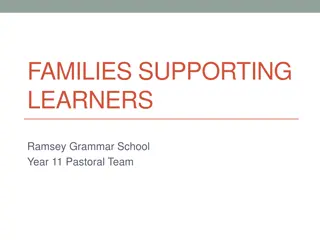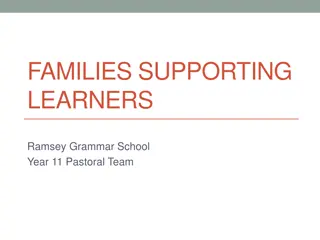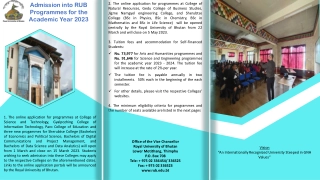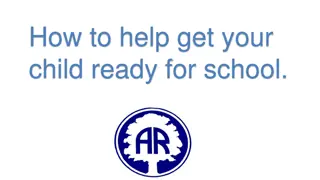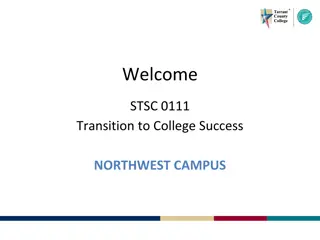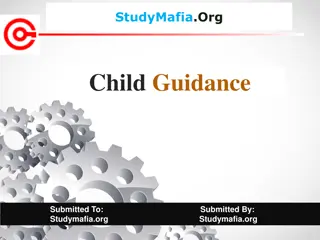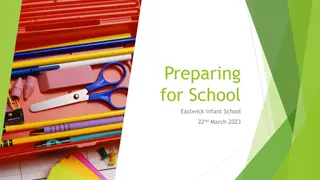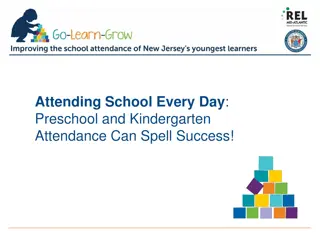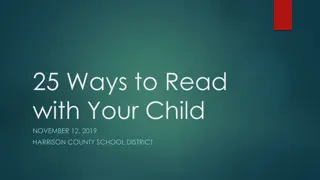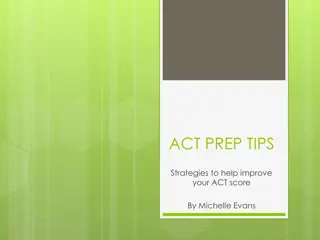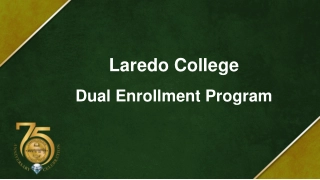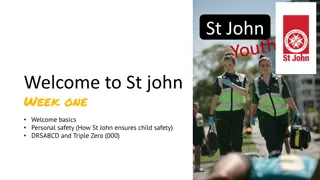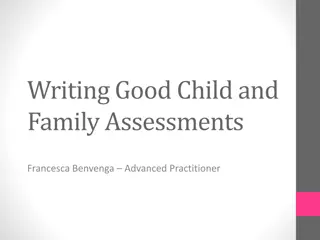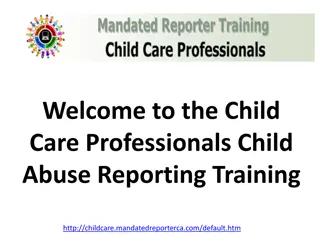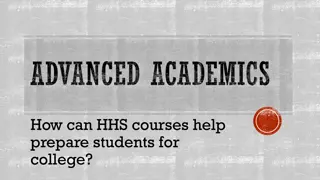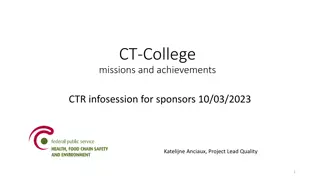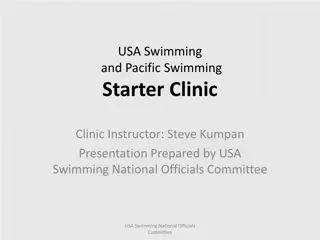Tips to Prepare Your Child for Starting School at Murtoa College
Parents and caregivers play a crucial role in preparing their children for school. Before starting school, it's essential to help children practice skills like recognizing and writing their names, dressing independently, familiarizing with school bags, preparing for eating time, and practicing reading. These activities will help children transition smoothly into the school environment and develop important skills for their educational journey.
Download Presentation

Please find below an Image/Link to download the presentation.
The content on the website is provided AS IS for your information and personal use only. It may not be sold, licensed, or shared on other websites without obtaining consent from the author. Download presentation by click this link. If you encounter any issues during the download, it is possible that the publisher has removed the file from their server.
E N D
Presentation Transcript
Preparing Your Child for Foundation at Murtoa College
Preparing Your Child for School Parents and caregivers can do lots to help prepare their child before they start school. In the lead up to starting school, it is beneficial for children to be given plenty of opportunities to practice the following skills.
Recognising and Writing their name Capital letter at the beginning of their name only. It can be very hard to unteach stray capitals in names. Know what their name looks like so they can find their belongings easily.
Getting Dressed Independently Students should be able to dress themselves independently Putting on/taking off school shoes and socks Allow them opportunities to practise tying their own shoe laces. Putting on jumpers independently.
Familiarise with School Bag Getting used to putting bags on their backs, carrying them, and taking them off. Packing their bags with all their school items. Zipping their bags open and closed.
Preparing for Eating Time Opening and closing lunch boxes. Ensure your child can unwrap or open all containers. Using drink bottles and bubble taps. Discuss what they will eat at different eating times- e.g recess and lunch.
Reading Practice holding a book correctly and turning the pages. Ask questions about what you ve read. For example: What happened? What was your favourite part? Read poems and Nursery Rhymes- this helps to develop phonemic awareness (the ability to hear rhyme and sounds in words)
Reading Practice holding a book correctly and turning the pages. Ask questions about what you ve read. For example: What happened? What was your favourite part? Read poems and Nursery Rhymes- this helps to develop phonemic awareness (the ability to hear rhyme and sounds in words)
Language Skills Encourage your child to talk about familiar objects and events. Following simple 2 step instructions e.g. put on your pyjamas, then go and brush your teeth. Encourage your child to communicate their needs e.g. I m thirsty, I need to go to the toilet. Allow your child to use a variety of tools to draw, scribble or write known words.
Number Skills Simple counting Identifying numbers 1-10 and counting out corresponding objects. E.g. count 5 teddies. Matching objects that are similar shape, size or colour.
Fine Motor Skills Cutting and pasting- using scissors safely and holding scissors correctly. Pencil control- get your child used to holding pencils, encourage correct pencil grip wherever possible. Working with playdoh, tracing, beads, Lego etc. Also build gross motor skills through indoor and outdoor play and encouraging your child to engage in activities that develop balance and coordination.
Preparing for the First Day In the weeks leading up to the first day of school: Discuss the kinds of things that will happen at school. Try to get your child excited! After all it s a big exciting new world they are coming to. Go for a walk/ drive past the school.
The Night Before School Help your child pack their bag with everything they need- hat, jumper (weather permitting) water bottle, spare pair of underpants. Ensure every item is clearly named. Make sure your child gets a good night s sleep.
The Morning Before School Have a healthy breakfast. Show your child what they have for lunch- discuss what to eat when, ensure they can open everything. Discuss what they re looking forward to for the day ahead. Reassure your child that it is ok to feel nervous, and that their teacher will give them all the instructions and help they need. Discuss how you will say goodbye when they are calm. Leave plenty of time to get to school- running late is stressful for children.
Once at School Show your child where you will pick them up in the afternoon. Remind them where the toilets and bubble taps are. If your child becomes upset, please do not prolong the farewell. They will be looked after, and we will call you if there are any problems. We are here to look after your child and promise we will do everything we can to be there for them.
After School Please be on time to pick up your child. Spend time asking questions and listening to your child talk about their day. Not what did you do today? as they will often say NOTHING. Instead try What was the best thing about your day?
First Few Weeks of School Don t be concerned if your child is extremely tired- don t plan too many afternoon activities and this goes for their first few Wednesdays at home. Don t keep your child home from school unnecessarily, as this can impact your child s learning and settling process. However, if your child is sick, please keep them home to avoid other students becoming sick.
First Few Weeks of School Speak to your child s teacher about any concerns you may have- but also give your child a chance to settle and adapt to their new school environment. School is very different to Kindergarten and takes time to adjust to. Regularly check communication from school and the classroom teacher, to ensure you are well informed about school events and anything you may need to know about assisting your child at home.
Further questions If you have any further questions, please contact Grace or Nicole at the College on 52 852 381 Grace Coustley Nicole Noonan F-1 teacher F-6 Leading Teacher









